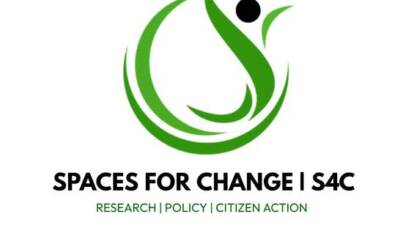If EFCC must parade suspects, start with corrupt politicians

By Abidemi Adebamiwa
The public parade of suspects has long raised constitutional and human rights concerns. Section 36(5) of the Nigerian Constitution guarantees the presumption of innocence, Section 34(1) protects the dignity of the human person, and Section 36(1) secures the right to a fair hearing.
Displaying suspects with placards of alleged crimes before they appear in court undermines these protections.
Despite this, the practice has continued, especially in cases involving young men accused of cybercrime or petty fraud. Images of these suspects are often circulated widely across media platforms, while those accused of large-scale corruption in public office tend to face a quieter process — arriving in court without the public spectacle.
This contrast has fueled debate about fairness and consistency in the justice system.
The courts have spoken on the matter. In 2022, Justice Zainab Abubakar of the Federal High Court in Abuja ruled in Victor Ojionu v. IGP & AGF that a pre-trial parade violated constitutional rights and the African Charter on Human and Peoples’ Rights.
Damages were awarded and media retractions ordered. Earlier, in Ndukwem Chiziri Nice v. AG Federation (2007), Justice Banjoko found that parading suspects amounted to prejudgment. The ECOWAS Court of Justice reached a similar conclusion in Dyot Bayi & 14 Ors. v. Federal Republic of Nigeria (2009), awarding compensation for violations of the presumption of innocence.
Prominent lawyers have also consistently described the practice as unlawful. Femi Falana, SAN, writing in 2017, called it discriminatory, noting that ordinary citizens accused of minor offences are paraded, while high-ranking officials accused of large-scale graft rarely face the same treatment.
Mike Ozekhome, SAN, has also pointed out the lasting reputational damage that can follow, even when courts later clear individuals of wrongdoing.
Recent government actions suggest a shift toward reform. In February 2025, Attorney General of the Federation Lateef Fagbemi (SAN) barred the police from parading suspects, citing the need to uphold constitutional guarantees and avoid discriminatory treatment.
A month later, Inspector-General of Police Kayode Egbetokun directed all police commands to comply, emphasizing that cases should be tested in court rather than tried in the media.
The EFCC, as a leading anti-graft agency, now faces an important choice. If deterrence is the goal, then it must be applied consistently, regardless of the suspect’s social or political standing. At the same time, the Constitution and judicial precedents make clear that the more sustainable path is to end public parades altogether. By focusing on evidence in court and respecting due process, law enforcement can strengthen public trust without risking constitutional breaches.
Adebamiwa, political analyst and Managing Editor @ Newspot Nigeria.
Tenancy Bill 2025: S4C welcomes clause to regulate rent increases
Stanley Ihedigbo Space for Change (S4C) has expressed support for Section 33 (1) of the La…





